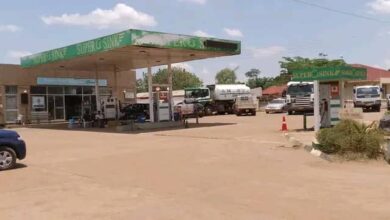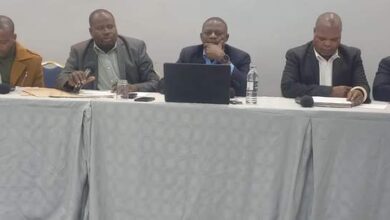National
Kabaza kills 860 People in 2020

From January this year, motorcycle taxis, locally known as kabaza, have killed 860 people in accidents, data from Ministry of Homeland Security shows.
Concerned with the rising number of traffic accidents linked to this popular mode of transport, government says it is engaging motorcycle taxi operators to acquire formal driving training and also help them follow road safety regulations.
Briefing journalists in Lilongwe yesterday, Minister of Homeland Security Richard Chimwendo Banda, who was accompanied by Inspector General (IG) of Police George Kainja, said 860 deaths had
been recorded by yesterday in The reported figure means that about 72 lives are lost every month, translating to two daily. This is also about 35 percent of deaths caused by road accidents as recorded in 2017 and 77 percent of road accident deaths reported in 2016.
During the briefing , Chimwendo -Banda said government has noted with concern that most of the kabaza riders do not follow road safety measures, including wearing of crash helmets and observing passenger capacity.
The minister estimated that there are at least one million motorcycle taxis nationwide, which makes it difficult to regulate them.
He said: “We are engaging them, but the challenge is that they have about 12 associations. So, today you agree something with this association and another one decides to take to the streets.
“But we are trying to raise awareness to have them adhere to road safety measures.”
Chimwendo-Banda said most of the kabaza operators cite cost as the reason they ply the streets without motorcycle licences and registration for their motorbikes.
He said his ministry has engaged the Ministry of Transport and Public Works to review licence fees for the motorcycle riders and that some driving schools have shown interest to start offering training at affordable rates.
On why there seem to be laxity in enforcing the law on motorbike operators, Kainja said the police have impounded a number of motorbikes found to have broken the law. He said the police will continue to enforce the law without looking at faces.
During the briefing, Kainja said the police will tighten security during this festive season, including mounting roadblocks in strategic points.
The IG also warned motorists who drive without number plates, saying the law will take its course regardless of the status of the person involved.
“It may have happened in the past, but now you are unlikely to see a car without a number plate. It does not matter who, traffic officers have been advised to enforce the law without looking at faces and we will do
it,” he said.
Chimwendo Banda said those who are in business of selling cars and would like to have their cars unregistered – they will be provided with temporary registration.
In recent years, road traffic accidents have been on the rise in the country with the Directorate of Road Traffic and Safety Services indicating that there were 10 193 accidents recorded in 2019 compared to 5 331 in 2018.
During the commemoration of the Africa Road Safety Day in November, the directorate said between January and June this year 616 people died in road accidents whi le 472 sustained critical injuries. In the corresponding period in 2019, 625 people died and 484 were injured.
While police and the directorate largely attribute human error for 80 percent of road accidents with weather and i n frastructur e accounting f
or the remaining 20 percent, a Nation Publications Limited investigation in 2017 established that loopholes and corruption at the traffic directorate also worsens the situation.
The investigation also established that unqualified people are able to get driver’s licences whi le unroadwor thy vehicles ply the road using counterfeit permits or certificates of fitness dubiously issued for vehicles not examined






